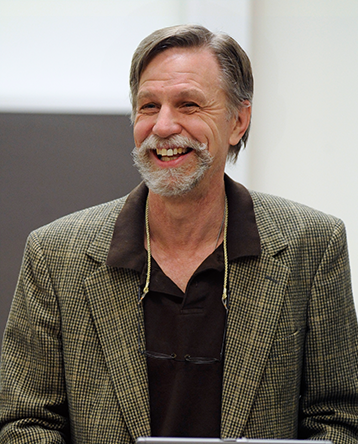Paul Fischbeck
Professor, Engineering and Public Policy, Social & Decision Sciences
Professor, Engineering and Public Policy, Social & Decision Sciences

Paul Fischbeck is a professor in the Departments of Engineering and Public Policy and Social and Decision Making Sciences at Carnegie Mellon University. Fischbeck applies the tools of decision analysis and behavioral social science to policy problems, paying particular attention to the quantification and communication of uncertainty. This work covers both theoretical improvements to decision analysis and numerous applied real-world problems.
Using a systems approach, Fischbeck has studied a variety of topical problems. Working closely with graduate students, he has quantified the pollution caused by international shipping and is investigating several engineering and economic solutions. He is director of the Center for the Study and Improvement of Regulation and has an active research program in understanding and improving risk communication and the design of effective decision support systems.
Recently, Fischbeck has studied the actual and perceived risks of mine subsidence in Western Pennsylvania, insurance-buying behavior in the United States and Japan, warning labels on paint strippers, and the health and environmental concerns of citizens in the Pittsburgh area. Other work includes an investigation of organizational reliability from a probabilistic risk analysis (PRA) perspective. A PRA study is often used to understand the reliability of a technical system (like the space shuttle), but it is only by including the organizational features that a true understanding of the risk and failure modes can be modeled. This more global perspective allows for the establishment of priorities for the allocation of a wide range of scarce resources including money, time, supervisory personnel, and test equipment.
1991 Ph.D., Industrial Engineering/Engineering Management, Stanford University
1981 M.S., Operations Research, Naval Postgraduate School
1974 B.S., Architecture, University of Virginia
CMU Engineering
A new model shows utilities and policymakers how technologies like carbon capture and storage (CCS) can be used to reduce CO2 emissions from existing and new power plants while minimizing costs.
CMU Engineering
While current proposed energy policies from the Democratic and Republican parties may sound different, new research from the Department of Engineering and Public Policy has found that they may actually lead to similar emissions outcomes—at least in the short term.
CMU Engineering
A new system using remote data transfers and machine learning could cut vehicle emissions, lower testing costs, and drastically reduce the need for in-person emissions testing.
Huffington Post, Marketplace Morning Report
EPP’s Paul Fischbeck estimates the carbon emissions associated with all facets of the Thanksgiving holiday. “If you look at the meal itself, about half of the emissions come from the growing and the transportation of the food,” said Fischbeck on Marketplace Morning Report. “The other half comes from the cooking of the food.”
CMU Engineering
From the ingredients to the cooking to the travel, CMU researchers tally up the carbon footprint of Thanksgiving.
CMU Engineering
Electric utility regulators claim to use a model to decide how much a utility should earn. But the data don’t support that idea, as returns to utilities have steadily risen over the past 40 years.
Vox
Vox reported on Paul Fischbeck's research into how natural gas prices could affect whether the US meets emissions reduction goals.
Triple Pundit
Research by EPP’s Paul Fischbeck and Haibo Zhai is featured in Triple Pundit.
Environmental Science & Technology
EPP's Paul Fischbeck and Haibo Zhai discuss US energy policy relative to emissions reductions after the exit from the Paris Climate Agreement.
CMU Engineering
When it comes to the current plans to retire U.S. power plants, Carnegie Mellon University researchers believe we are “running towards a cliff with no fence.”